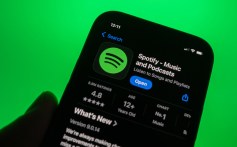Copyright
Trending on Billboard
Warner Music Group (WMG) has hit apparel company PacSun with a copyright infringement lawsuit for allegedly using unlicensed music in advertisements and influencer videos on TikTok and Instagram.
The lawsuit, filed on Monday (Dec. 1) in California federal court, claims PacSun’s social media pages have illegally used hundreds of unlicensed tracks by top artists like Cardi B, Ariana Grande, Beyoncé, Dua Lipa, Charli xcx and Bruno Mars. WMG owns rights to these songs via various label subsidiaries, including Atlantic Records and Warner Records, and its publishing arm, Warner Chappell Music.
Related
According to the legal complaint, PacSun has invested heavily in social media marketing in recent years. WMG says the retailer has been “wildly successful” in selling apparel directly through posts on TikTok and Instagram, building up millions of followers and earning hundreds of millions of dollars in annual revenues.
“However, defendants achieved that success through their blatant, willful and repeated copyright infringement, including the infringement of at least 290 of plaintiffs’ most popular and valuable sound recordings and musical compositions,” write WMG’s lawyers at Sidley Austin.
While individual social media users can soundtrack their videos for free with songs covered by blanket licenses, companies are required to buy so-called sync licenses for music in commercial advertisements. There has been a spate of lawsuits in recent years from the major record labels against brands that use unlicensed music on Instagram and TikTok, including Bang Energy, Chili’s and Behr Paint.
Related
Like those previous lawsuits, WMG alleges here that PacSun uses copyrighted music to soundtrack its social media ads without buying sync licenses. The lawsuit also accuses PacSun of paying influencers to do the same, citing TikTok videos of influencers lip-syncing to Jack Harlow’s “WHATS POPPIN” and the Fleetwood Mac classic “Dreams” while encouraging followers to buy PacSun products.
WMG says it sent a cease-and-desist letter to PacSun back in February 2024, but to no avail: “Not only did PacSun explicitly choose to ignore the demand, its infringement both continued unabated as to several of the works identified by plaintiffs and expanded to include new, additional infringements,” reads the lawsuit.
Now, WMG is seeking a court injunction to stop the alleged infringement, as well as financial damages. The music company says it’s entitled to the maximum statutory damages of $150,000 per infringed work, which would add up to a whopping $43.5 million for all 290 of the songs at issue.
PacSun did not immediately return a request for comment on Tuesday (Dec. 2).
Trending on Billboard
THE BIG STORY: It’s almost 2026. Music lawyers are grappling with streaming fraud, deepfakes and trillion-dollar battles over artificial intelligence. And the U.S. Supreme Court is talking about … file sharing?
Nearly 30 years after the industry-shaking debut of Napster, online piracy is no longer the existential threat it once was. (Don’t worry: We’ve got robot musicians to worry about now.) Are a commercially significant number of people really still illegally downloading music files when humanity’s full corpus of recorded music is available for $12?
But litigation moves at a glacial pace — and in the mid-2010s, piracy was still a big enough deal that the industry began cracking down on the internet service providers that enabled it. The biggest such case, filed in 2018 by Universal, Warner and Sony against Cox, eventually saw a jury award the labels a whopping $1 billion over piracy by Cox subscribers.
Related
Nearly seven years later, that case is now before the Supreme Court – something of a legal time capsule from an earlier technological era, but one that the justices are worried could lead to “extreme” outcomes for our current one.
For more, go read our full breakdown of the case and this week’s big oral arguments at the high court.
You’re reading The Legal Beat, a weekly newsletter about music law from Billboard Pro, offering you a one-stop cheat sheet of big new cases, important rulings and all the fun stuff in between. To get the newsletter in your inbox every Tuesday, go subscribe here.
Other top stories…
TALK THE LINE? The estate of Johnny Cash is suing Coca-Cola over ads that allegedly mimic the country legend’s voice – the first ever case to be brought under Tennessee’s recently enacted ELVIS Act aimed at prohibiting voice cloning in the A.I. era.
MEGAN THEE PLAINTIFF – A jury issued a verdict siding with Megan Thee Stallion in her defamation lawsuit against celebrity gossip blogger Milagro Gramz, who the star claims acted as Tory Lanez’s “mouthpiece” to spread misinformation after he shot Megan in 2020.
DIDDY V. NETFLIX – Lawyers for Sean “Diddy” Combs sent Netflix a cease-and-desist letter warning of litigation if the streamer releases a 50 Cent-produced docuseries Sean Combs: The Reckoning.
CAN’T SHAKE IT OFF – A federal judge refused to dismiss a lawsuit filed by hundreds of Taylor Swift fans over Ticketmaster’s botched sale of Eras Tour tickets three years ago, allowing the case to move ahead.
TAKE IT EASY – A judge rejected a civil lawsuit against Don Henley and Irving Azoff over the criminal prosecution of three men who allegedly tried to sell stolen Eagles lyrics – a case that ended in a spectacular collapse in 2024.
Related
DOING TIME – Fugees rapper Pras Michel was sentenced to 14 years in prison following his conviction on illegal foreign lobbying and conspiracy charges linked to Jho Low, the Malaysian financier who masterminded the 1MDB corruption scandal.
RESTAURANT ROW – Usher is suing music producer Bryan-Michael Cox and other organizers of a failed Atlanta restaurant project, claiming they misused money he loaned and still owe him $700,000.
MJ BIOPIC – Michael Jackson’s daughter Paris fired a legal broadside at the executors of her father’s estate, claiming a looming Michael movie and other projects are designed to “enrich and aggrandize” them rather than build wealth for the family.
FEE FIGHT – Nelly is demanding that a lawyer for one of his former St. Lunatics bandmates repay more than $78,000 he spent in legal bills to defeat her “frivolous” lawsuit over the rights to his debut album Country Grammar.
“STRONG WORDS” – Live Nation and Ticketmaster filed a long-awaited motion for summary judgment seeking to end the Justice Department’s sweeping antitrust case – claiming the feds used “strong words” that do not have “a lick of truth to them.”
MORE ACCUSERS – Two more of Smokey Robinson’s former employees — a woman and a man — came forward with claims that the 85-year-old Motown singer sexually assaulted them, adding to four earlier accusers.
LYRIC LITIGATION – GloRilla won a ruling dismissing — for now, at least — a lawsuit that accused her of stealing a social media personality’s viral catchphrase “all natural, no BBL” with the lyrics to her 2024 song “Never Find.”
CASE DROPPED – An appeal filed by Making the Band contestant Sara Rivers aimed at reviving her $60 million sexual assault lawsuit against Sean “Diddy” Combs was abruptly dismissed — a move that came after her lawyers failed to file basic court forms.
CASE TOSSED – A judge dismissed a civil lawsuit filed against Kevin Liles by an anonymous executive assistant who claimed she was sexually assaulted by the legendary record executive at Def Jam in the early 2000s.
GOING PUBLIC – StubHub is facing a class action claiming it hid key details from investors ahead of its $758 million initial public offering (IPO) in September.
TRIAL SET – Aaron Carter’s family will head to trial next year in a wrongful death lawsuit against doctors and pharmacies that allegedly gave the late singer access to Xanax pills before he drowned in a bathtub in 2022.
Trending on Billboard
The U.S. Supreme Court on Monday (Dec. 1) wrestled with a billion-dollar music piracy lawsuit filed by the major labels against telecom giant Cox Communications, grilling lawyers for both sides over the “extremes” of their arguments.
During a hearing at the nation’s highest court, justices sharply questioned Cox’s lawyer over whether a victory would give the internet service provider (ISP) carte blanche to ignore illegal conduct by its subscribers: “What incentive would you have to do anything if you won?” asked Justice Amy Coney Barrett.
Related
But the justices also interrogated an attorney representing Sony Music Entertainment, Warner Music Group (WMG) and Universal Music Group (UMG), echoing concerns from Cox and free speech advocates that the case could force ISPs to terminate service en masse. “I don’t see how it’s workable at all,” Justice Samuel Alito said.
“We are being put to two extremes here,” said Justice Sonia Sotomayor. “How do we announce a rule that deals with those two extremes?”
UMG, Sony and WMG teamed up to sue Cox in 2018, claiming the internet provider itself should be held legally responsible for enabling the sins of its users. The labels claimed Cox had received hundreds of thousands of notices about piracy, but had never permanently terminated a single subscriber accused of stealing music.
In December 2019, a jury issued a verdict holding Cox liable for helping users infringe more than 10,000 songs, awarding the labels more than $99,000 per song — adding up to a whopping $1 billion fine.
Related
With that case now before the Supreme Court, Cox has argued that a victory for the labels “jeopardizes internet access for millions of users” because ISPs will be forced to terminate users rather than risk billions in legal damages. The labels say such warnings are overblown and designed to distract from the facts of the case: “Cox made a deliberate and egregious decision to elevate its own profits over compliance with the law.”
Arguing for Cox at Monday’s hearing, attorney Joshua Rosencranz said a ruling for the labels would have “cataclysmic” consequences for the internet, and could “wreak havoc with the essential medium through which modern public engages in commerce and speech.”
“There is no surefire way for an ISP to avoid liability,” Rosencranz warned. “The only way it can is to cut off the internet, not just for the accused infringer but for anyone else who happens to use the same connection.”
Rosencranz repeatedly cited recent Supreme Court rulings to support that hands-off approach. One said Twitter did not aid a terrorist attack simply because ISIS used the social media site; another said a foreign government could not sue American gun makers for aiding drug cartels that had used their weapons.
Related
But several justices seemed troubled by that argument. Justice Elena Kagan suggested Cox’s knowledge about specific users was likely more detailed than in the Twitter case. Justice Barrett asked if an ISP would be required to act if it was alerted to child trafficking by its subscribers. Justice Sotomayor repeatedly asked what motive ISPs would have to tackle infringement if the court sides with Cox.
“You know that a particular location is infringing, and most of the time you’re doing nothing,” Sotomayor said. “Why aren’t you contributing to that infringement?”
Representing the labels, attorney Paul D. Clement told the justices that Cox had held copyright law “in contempt. He said it was “beyond dispute” that Cox had provided continued internet access to subscribers that it knew would continue to steal music.
“That reality … is what requires Cox to insist on the extreme position that they can continue to provide service to habitual abusers in perpetuity without consequences,” Clement said. “Why bother cooperating with copyright holders?”
Related
But that argument, too, faced strong scrutiny. Justice Kagan said the labels’ argument “fails” under the recent Twitter and guns rulings. Justice Samuel Alito echoed Cox’s fears about mass terminations, asking Clement how to deal with a college that provides internet to tens of thousands of students. “I really don’t see how your position works in that context,” Alito said.
Though both sides faced difficult questioning, Cox had a powerful ally at Monday’s hearing in the form of the U.S. Solicitor General’s Office, which has urged the justices to overturn the ruling against Cox. At the arguments, Deputy Solicitor General Malcolm Stewart said the labels had simply not met the standard to hold Cox liable — and that the stakes of the case were huge.
“Terminating all access to the internet based on infringement seems extremely overbroad given he centrality of the internet to modern life and given the First Amendment,” Stewart told the justices near the end of his argument.
Following Monday’s hearing, the case is fully ready for a ruling by the Supreme Court. The justices will now deliberate and issue a written ruling in the next few months.
Trending on Billboard
GloRilla has defeated a lawsuit that accused her of stealing a social media personality’s viral catchphrase “all natural, no BBL” for her 2024 song “Never Find.”
The federal copyright case was filed this summer by Natalie Henderson, aka @slimdabodylast on Instagram, who claims she coined the catchphrase referencing “Brazilian butt lift” surgery. Henderson says GloRilla (Gloria Woods) stole the phrase for her lyric “All natural, no BBL/ Mad hoes go to hell” on “Never Find,” a bonus track off her debut album Glorious.
Related
GloRilla’s lawyers denied any infringement and argued that nobody can copyright a “cliched” expression like “all natural, no BBL.” But it doesn’t look like a court will have to decide these substantive questions; Judge Lance M. Africk dismissed Henderson’s lawsuit on Friday (Nov. 21) based on geographical technicalities.
The suit was brought in Henderson’s home state of Louisiana, but the judge ruled that wasn’t enough to establish jurisdiction over GloRilla, a Georgia resident, or the various label defendants also named in the lawsuit — California-based Universal Music Group and Warner Chappell, Tennessee-based CMG and New York-based BMG.
Henderson tried to argue that jurisdiction was established by GloRilla doing business in New Orleans, including by attending the 2025 Super Bowl and performing at the city’s Smoothie King Center when she opened for Lil Baby’s It’s Only Us tour in 2023 and Megan Thee Stallion’s Hot Girl Summer tour in 2024. But Judge Africk was not convinced.
Related
“Plaintiff’s claims do not arise out of or result from defendant Woods’s concerts or personal appearances in Louisiana, particularly when plaintiff has not made any allegations that ‘Never Find’ was ever performed in Louisiana,” wrote the judge.
Judge Africk similarly rejected Henderson’s contention that the case could be brought in Louisiana because “Never Find” was distributed in the state. He noted that the song was available worldwide — and also pointed out a major hole in Henderson’s argument.
“Plaintiff relies on her counsel’s purchase of a copy of defendant Woods’s album Glorious on vinyl at a New Orleans record store as evidence that defendants ‘specifically targeted consumers in Louisiana,’” wrote the judge. “However, ‘Never Find’ was not included on the vinyl that plaintiff’s counsel purchased, as it was only released as a bonus track on an exclusive digital version of the album Glorious.”
The lawsuit was dismissed without prejudice, meaning Henderson can attempt to refile the lawsuit in a different state if she so chooses. Her lawyer did not immediately return a request for comment on Friday, and neither did GloRilla’s reps.
This isn’t GloRilla’s first time defeating a copyright infringement lawsuit. Another case, which alleged her hit songs “Tomorrow” and “Tomorrow 2” sampled a decades-old hip-hop track without permission, was also dismissed out of New Orleans federal court last year for jurisdictional reasons.
GloRilla was sued again a year ago alongside Megan Thee Stallion, Cardi B and Soulja Boy for supposedly sampling the 2008 Plies song “Me & My Goons” without clearance on their collaboration “Wanna Be.” That case was voluntarily dropped in March.

Trending on Billboard
Nelly is demanding that a lawyer for one of his former St. Lunatics bandmates repay more than $78,000 he spent in legal bills to defeat her “frivolous” lawsuit over the rights to his debut album Country Grammar.
The case, filed by ex-bandmate Ali, was dropped in April after Nelly argued it was obviously filed years after the statute of limitations had expired. Last month, a federal judge ruled that the case was so bad that Ali’s lawyer must repay his legal bills as punishment for pursuing it too far.
In a court filing on Wednesday, Nelly’s attorneys handed Ali’s lawyer the tab: $78,007 in legal fees for three copyright litigators, covering 142 hours they say they spent working on the case after it was clear it should have been dropped.
Related
“These rates are reasonable because they reflect the market rate for similar services to our quality of work in the New York City area,” Nelly’s attorney Kenneth Freundlich writes in the filing.
Ali’s attorney, Precious Felder Gates, will have a chance to argue for a lower fine before the judge settles on a final number. In a statement to Billboard on Thursday, she said she still believes the sanction itself was “unwarranted,” saying she’d “acted with the honest conviction that our client’s claims merited judicial consideration.”
Wednesday’s filing highlights the risk of filing questionable lawsuits against well-heeled defendants – and a potential weapon for top musicians who have complained about a rise in such cases. Ed Sheeran, Cardi B, Jay-Z and many other stars have warned that such lawsuits are often aimed at extracting quick settlements by exploiting the hassle and expense of litigation.
The case against Nelly was filed last year by members of St. Lunatics, a hip-hop group also composed of St. Louis high school friends Nelly, Ali (Ali Jones), Murphy Lee (Tohri Harper), Kyjuan (Robert Kyjuan) and City Spud (Lavell Webb). It centered on Country Grammar, the star’s debut solo album that spent five weeks atop the Billboard 200 and helped launch a career that reached superstar heights with his 2002 chart-topping singles “Hot in Herre” and “Dilemma.”
Related
The lawsuit alleged that Nelly had cut his former crew members out of the credits and royalty payments for the hit album. It claimed the star had repeatedly “manipulated” them into falsely thinking they’d be paid for their work.
But three of the St. Lunatics quickly dropped out, saying they had never actually wanted to sue Nelly and hadn’t given authorization to the lawyers who filed the case. Though Ali initially moved ahead alone, he dropped the case entirely in April. That move came as Nelly’s lawyers were seeking to dismiss the decades-delayed case under the Copyright Act’s three-year statute of limitations.
Though the case was over, Nelly’s attorneys refused to let Ali and his lawyers walk away. They asked for sanctions — meaning legal penalties — over a “vexatious” lawsuit that “should never have been brought.”
In the American legal system, each side usually pays its own legal bills, even including defendants who win a lawsuit that they feel they shouldn’t have faced. Only in rare cases, including as punishment for misconduct, do judges order the loser to repay the winner’s fees.
Last month, U.S. Magistrate Judge Robert W. Lehrburger said the case against Nelly was that kind of rare situation. He said it should have been “patently obvious” to Felder Gates that the case was doomed by last November, but that she had instead “doubled down.”
Related
Felder, the judge said, should face punishment for “vexatiously protracting the proceedings in bad faith by her attempt to obfuscate the facts she knew barred Jones’s claims and her subsequent refusal to withdraw the amended complaint in the face of overwhelming arguments that the claims could not possibly succeed.”
At the time, Freundlich said he hoped the ruling “sends a message to lawyers that there will be consequences for dragging a defendant into an action that is frivolous on its face.”
Wednesday’s filing explained the amount that Nelly’s lawyers say Felder Gates should pay under that order. Freundlich, a veteran music industry litigator, says he spent 19 hours at his rate of $725 per hour; a senior counsel at his firm, Jonah A. Grossbardt put in 88 hours at $575 per hour; and an associate, Hugh H. Rosenberg, worked 35 hours at $375 per hour.
Such rates are typical for attorneys at those levels in major law firms in New York and Los Angeles. Many lawyers at bigger firms charge even more, and complicated cases can cost millions to litigate. But the judge is not required to grant the entire request and could very well settle on a lower number.
Felder Gates will have a chance to file a motion next week seeking a lower fine, but the judge’s order means that she will eventually have to pay Nelly some amount of fees. In her statement to Billboard, she continued to defend her firm’s conduct in the case.
“Our firm pursued a legitimate claim in good faith to protect rights expressly afforded to our client,” she said. “Based on the information available and the applicable law, we held a reasonable and well-supported belief that viable arguments existed to [extend] the statute of limitations, and we accordingly advanced those defenses.”
Trending on Billboard
ABKCO, a music company that owns The Rolling Stones‘ early catalog, has brought a lawsuit against Behr Paint over an Instagram advertisement that allegedly used an unlicensed version of the band’s “Paint It, Black,” which ABKCO calls “one of the most valuable copyrights in the history of popular music.”
The copyright infringement case, filed on Wednesday (Nov. 12) in federal court, centers on a 2022 Instagram ad for Behr that showed a person spray-painting furniture while “Paint It, Black” played in the background. ABKCO claims Behr didn’t pay for the track.
Related
While individual social media users can soundtrack their videos for free with songs covered by blanket licenses, companies are required to buy so-called sync licenses for music in commercial advertisements. ABKCO’s lawsuit says it regularly sells sync licenses for “Paint It, Black” — and collects fees ranging from the hundreds of thousands to millions of dollars for the song, which hit No. 1 on the Billboard Hot 100 in 1966.
“Behr’s commercial use of the ABKCO recording has forced a business association upon ABKCO that has harmed its ability to license the ABKCO recording to Behr’s competitors that would pay for the use of the ABKCO recording,” writes lawyer Benjamin Akley of Pryor Cashman. “Clearly, the ABKCO recording is not only iconic, it has unique and particular value to a paint company seeking to promote its paint products.”
According to the lawsuit, ABKCO didn’t learn about the 2022 ad until this past summer. ABKCO’s attorneys allegedly notified Behr, leading the paint company to take down the video, though the company “was unwilling to engage in further dialogue concerning its unauthorized use,” the lawsuit claims.
Related
ABKCO claims Behr is a “sophisticated, multi-billion-dollar corporation” that knows the rules around sync licenses, yet it “inexplicably” chose not to follow those rules here. Now, the lawsuit is seeking financial penalties for Behr’s alleged copyright infringement.
“As a result of the aforementioned acts of infringement, ABKCO has suffered significant damages,” reads the complaint.
Reps for Behr did not immediately return a request for comment on the lawsuit on Thursday (Nov. 13).
Trending on Billboard
A new lawsuit claims Drake’s ”What Did I Miss?” music video ripped off the work of an Italian photographer — and, in a strange twist, that the rapper was intentionally trying to connect his feud with Kendrick Lamar to a controversial Balenciaga campaign.
The copyright infringement complaint, filed against Drake (Aubrey Graham) on Wednesday (Nov. 12) in federal court, alleges a key sequence in the “What Did I Miss?” video lifts from a photograph in Gabriele Galimberti’s 2020 book The Ameriguns. Both Galimberti’s photo and the scene in question show men standing outside houses, surrounded by firearms laid out in parallel around swimming pools.
Related
Galimberti is a photographer with National Geographic, though he is perhaps best known for shooting a notorious 2022 Balenciaga campaign that portrayed children with sexually explicit objects. The campaign drew a huge backlash, with consumers accusing the fashion house and Galimberti of glorifying pedophilia.
Wednesday’s lawsuit draws a direct line between the Balenciaga controversy and “What Did I Miss?,” in which Drake addressed the aftermath of his rap battle with Lamar. That feud ended with Lamar calling Drake a “certified pedophile” on the chart-topping diss track “Not Like Us,” leading Drake to sue Universal Music Group (UMG) for defamation.
“Plaintiff was ultimately publicly vindicated in a defamation lawsuit abroad related to the false accusations arising from the Balenciaga advertisement,” writes Galimberti’s attorney. “Given Kendrick Lamar’s lyrics…calling defendant Graham a pedophile and defendant Graham’s now dismissed defamation lawsuit, on information and belief, defendant Graham sought to imply that he, like plaintiff, would be publicly exonerated.”
Related
Drake’s defamation lawsuit was dismissed last month, with a federal judge ruling that lyrics in rap battles are hyperbole and not meant to imply facts. Drake is now appealing to revive the case against UMG, which owns both Lamar’s label Interscope Records and his label, Republic Records.
Republic and UMG are both defendants in Galimberti’s lawsuit as well, along with Drake and his company OVO Sounds. Galimberti is seeking financial damages for what he describes as “both an egregious violation of federal law and an affront to plaintiff, his livelihood, his legacy and to photographers everywhere.”
“Plaintiff is a serious professional, addressing serious themes,” reads the complaint. “His work hangs in galleries, museums, graces serious print literature, and his career depends upon the respect and admiration of dealers, collectors and critics of contemporary and documentary art. By the forced and unauthorized association of his work with the infringing video, the integrity of his work and his reputation as a photographer has been damaged.”
Reps for Drake and UMG did not immediately return requests for comment on the lawsuit.
“What Did I Miss?” debuted at No. 2 on the Billboard Hot 100 in July, and hit No. 1 on both Hot R&B/Hip-Hop Songs and Rhythmic Airplay, extending multiple Billboard chart records for the rapper.
Trending on Billboard
There’s a new front in the nasty legal war between hip-hop producer Madlib and his longtime manager Eothen “Egon” Alapatt: The many songs recorded during their decade-long partnership.
In a lawsuit filed Tuesday (Nov. 11) against Madlib (Otis Lee Jackson Jr.), Egon asked a federal judge to decide who owns the rights to the masters created over the years at their Madicine Show label — tracks that feature Madlib’s beats under vocals by Mac Miller, Freddie Gibbs, Four Tet and others.
Related
“Jackson now claims those works as his personal property and seeks to withdraw them entirely from Madicine Show’s catalog,” writes Egon’s attorney Kenneth Freundlich. “That is not how the law works.”
In a statement to Billboard, Madlib responded to Egon’s new claims: “I trusted someone who didn’t value the art the way I do. This is a reminder that not everyone who stands beside you is standing for you. When you move with truth, you don’t have to defend yourself. Time and integrity do the talking.”
Madlib, a critically-acclaimed producer known for his work with Kanye West (now Ye) and the late MF Doom, went to court first in 2024 — accusing Egon of “rank self-dealing” and “pervasive mismanagement.” The case, filed in California state court, claimed the manager had abused his power over Madicine Show to profit at Madlib’s expense.
Egon hit back in May, filing a countersuit blasting Madlib for “having the audacity to bring this mean-spirited personal action.” In one notable claim, Egon said Madlib’s new label was interfering with music projects that legally belong to Madicine Show, including the release of a years-old recording of the late Miller that has long been rumored to be in the works.
Related
In the new case on Tuesday, Egon said he needed “immediate federal intervention” in that legal battle because of a key new development in the earlier lawsuit.
Last month, a Los Angeles judge sided with Madlib and ruled that a court-appointed receiver should oversee the corporate dissolution of Madicine Show. The ruling came over objections from Egon, who said he himself should oversee the company’s wind-down. “Defendant is not the appropriate person to oversee the dissolution process,” the judge said at the time. “The court will appoint a receiver.”
But now, weeks later, Egon says in his new lawsuit that the breakup process cannot move ahead until it’s clear who owns the company’s “most valuable assets”: its catalog of recorded music. And since copyright law is handled exclusively by federal courts, he says that decision must be made by a U.S. district judge.
“The recordings at issue were created and exploited pursuant to a licensing relationship between Jackson and Madicine Show,” Egon writes. “They remain company assets, and their ownership must be determined under the Copyright Act.”
Related
According to the lawsuit, the tracks recorded by Miller and others over Madlib’s beats were “facilitated, supervised, and produced” by Egon under a longstanding arrangement in which the company controlled them. The producer’s recent claim that “he alone owns all copyrights” is “mystifying” and legally incorrect, the suit says.
“This position ignores the parties’ mutual understanding and Alapatt’s creative, financial, and managerial contributions,” Egon’s lawyers write. “After benefiting from that arrangement, Jackson cannot revoke or withdraw those rights or claim exclusive ownership of works that were created, produced, and marketed under Madicine Show’s direction.”
Attorneys for both sides did not immediately return requests for comment on the new case.
Trending on Billboard
Since subscribing to Spotify in 2023, Genevieve Capolongo says she’s mostly listened to “lesser-known artists” like Próxima Parada, Julia Cooper and Brusco. But she says the streamer’s recommendation tools keep serving her “mainstream, major-label tracks” by Drake, Zach Bryan and Justin Bieber.
According to her lawyers, that’s because Spotify was paid to do so.
Related
In a lawsuit filed last week, Capolongo claims the streamer’s Discovery Mode and editorial playlists amount to a “modern form of payola,” allowing labels to secretly boost their tracks with a “deceptive pay-for-play” program. She says she wouldn’t have subscribed if she knew that Spotify’s recommendations had been sold “to the highest bidder.”
The case is sometimes light on specifics, like citing unnamed “industry insiders” about alleged illicit payments or “disproportionate” rates of major-label music. Spotify, for its part, called the lawsuit “nonsense” and said it was “riddled with misunderstandings and inaccuracies.”
But it targets a program that has raised eyebrows for years — and comes at a time when Spotify has faced multiple accusations about manipulation on the platform. For more, go read our full story here.
You’re reading The Legal Beat, a weekly newsletter about music law from Billboard Pro, offering you a one-stop cheat sheet of big new cases, important rulings and all the fun stuff in between. To get the newsletter in your inbox every Tuesday, go subscribe here.
Other top stories this week…
DRAKE’S APPEAL – As Drake asks an appeals court to revive his lawsuit over Kendrick Lamar’s “Not Like Us,” I asked legal experts what his lawyers might argue — and whether it’ll work.
TAYLOR V. TRUMP? – Taylor Swift fans want her to sue the Trump administration after it used “The Fate of Ophelia” in a TikTok video. She probably could, but almost certainly won’t.
DISJOINT VENTURE – 10K Projects, the Warner-owned label founded by Elliot Grainge, is facing a lawsuit claiming it owes millions to Taz Taylor’s Internet Money Records under a joint venture.
FAST & FREE SONGS – How did New York City Mayor-elect Zohran Mamdani get clearance to use Bob Dylan’s iconic anthem “The Times They Are A-Changin’” in a campaign ad? It turns out he didn’t.
MJ LITIGATION – Michael Jackson’s estate is locked in a legal battle over abuse allegations from the Cascio siblings, who spent much of their childhoods with the King of Pop.
GORDIAN SLIPKNOT – Slipknot’s lawsuit against a group that has owned slipknot.com for decades has hit an unexpected snag: The shadowy entity has hired a lawyer and is fighting back.
ATLANTA ARREST – Rod Wave was arrested in Atlanta on weapon and drug charges. His lawyer — star defense attorney Drew Findling — says Wave was “unjustly profiled and unlawfully arrested.”
NAME REVEAL? – A “Jane Roe” woman who accused Garth Brooks of sexual assault is refusing to concede defeat in her fight to remain pseudonymous, filing an appeal to avoid disclosing her real name.
NOVEMBER LITIGATION – An ex-manager of Guns N’ Roses is suing the band, claiming it has unfairly blocked the release of his memoir by threatening to sue him and his publisher over a decades-old NDA.
Trending on Billboard A federal judge rejected a lawsuit claiming the Rock & Roll Hall of Fame broke the law by using a copyrighted photo of Eddie Van Halen in a museum exhibit. Dismissing a case filed by rock photographer Neil Zlozower, Judge Christopher A. Boyko said the Rock Hall made legal “fair use” of […]

 State Champ Radio
State Champ Radio 









